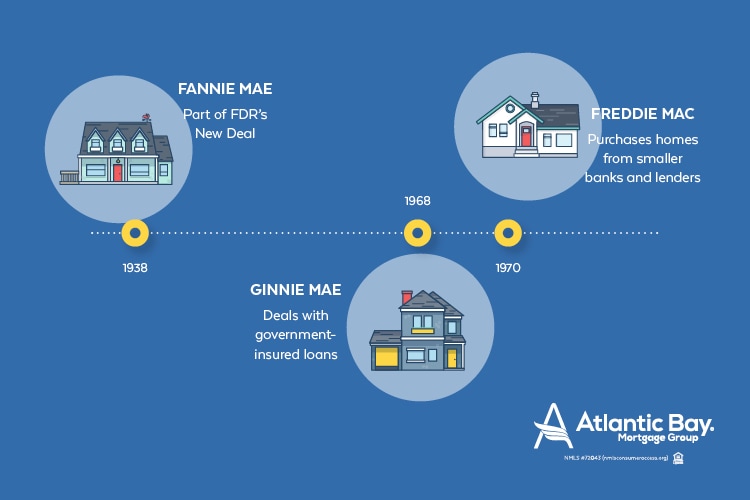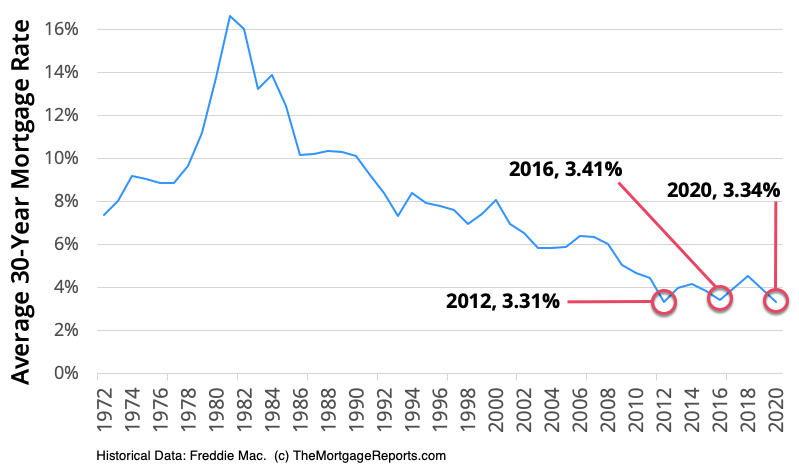The reverse mortgage balance can be paid back at any time without charge. You can select to either pay back the loan willingly or defer interest until you later on sell your home. When the loan balance will be paid in full any staying equity will come from your successors or estate. Yes. A foreclosure is a legal procedure where the owner of your reverse mortgage obtains ownership of your residential or commercial property. Even if you have actually gotten a foreclosure notice, you might still be able to prevent foreclosure by pursuing one of the alternatives noted above. Your reverse home mortgage business (also http://dominickfozk250.bravesites.com/entries/general/the-main-principles-of-how-do-15-year-mortgages-work referred to as your "servicer") will ask you to accredit on an annual basis that you are living in the property and preserving the home.
However, these costs are your responsibility so make certain you have actually set aside enough money to pay for them and make sure to pay them on time. Not satisfying the conditions of your reverse mortgage might put your loan in default. This indicates the home loan business can demand the reverse home mortgage balance be paid in complete and may foreclose and sell the residential or commercial property.
However, if you move or sell the home, the loan ends up being due and must be settled. In addition, when the last surviving debtor dies, the loan ends up being due and payable. Yes. Your estate or designated successors might retain the property and please the reverse home mortgage financial obligation by paying the lesser of the home loan balance or 95% of the then-current appraised worth of the house.
No financial obligation is passed along to the estate or your heirs. Yes, if you have actually supplied your servicer with a signed third-party permission file authorizing them to do so. No, reverse home loans do not permit co-borrowers to be included after origination. Your reverse home mortgage servicer might have resources available to help you.
Your therapist will assist you review your financial situation and work with your home mortgage servicer. In addition, your therapist will be able to refer you to other resources that may assist you in stabilizing your budget plan and retaining your home. Ask your reverse home loan servicer to put you in touch with a HUD-approved counseling company if you have an interest in talking with a real estate therapist.
The Definitive Guide to What Will Happen To Mortgages If The Economy Collapses
Department of Real Estate and Urban Advancement (HUD) Workplace of the Inspector General Hotline 800-347-3735 or email: [email protected] Federal Housing Finance Company Workplace of the Inspector General Hotline 800-793-7724 or on the Web at: www.fhfaoig.gov/ReportFraud Even if you remain in default, alternatives may still be available. As an initial step, call your reverse home mortgage servicer (the company servicing your reverse home loan) and explain your scenario.
You can likewise call a Learn more HUD-approved counseling company for more info about your situation and choices to help you prevent foreclosure. Ask your reverse mortgage servicer to put you in touch with a HUD-approved counseling firm if you're interested in speaking with a housing therapist. It still may not be too late.
If you can't settle the reverse mortgage balance, you may be eligible for a Short Sale or Deed-in-Lieu of Foreclosure (which of the following is not a guarantor of federally insured mortgages?).
A reverse mortgage is a mortgage, usually secured by a house, that makes it possible for the debtor to access the unencumbered worth of the residential or commercial property. The loans are usually promoted to older house owners and generally do not need regular monthly home loan payments. Borrowers are still responsible for real estate tax and homeowner's insurance.
Because there are no required home mortgage payments on a reverse mortgage, the interest is contributed to the loan balance monthly. The rising loan balance can eventually grow to exceed the value of the home, particularly in times of declining home worths or if the debtor continues to reside in the home for several years.
How Who Owns Bank Of America Mortgages can Save You Time, Stress, and Money.
In the United States, the FHA-insured HECM (house equity conversion home loan) aka reverse home loan, is a non-recourse loan. In easy terms, the debtors are not accountable to repay any loan balance that goes beyond the net-sales profits of their house. For example, if the last borrower left the home and the loan balance on their FHA-insured reverse mortgage was $125,000, and the house offered for $100,000, neither the debtor nor their heirs would be accountable for the $25,000 on the reverse home mortgage loan that went beyond the worth of their home.

A reverse home loan can not go upside down. The cost of the FHA home mortgage insurance is a one-time cost of 2% of the appraised value of the home, and after that an annual cost of 0.5% of the impressive loan balance. Specific guidelines for reverse mortgage deals vary depending on the laws of the jurisdiction.
Some economists argue that reverse mortgages might benefit the senior by raveling their earnings and usage patterns with time. However, regulatory authorities, such as the Customer Financial Defense Bureau, argue that reverse mortgages are "complicated items and tough for consumers to understand", especially because of "deceptive advertising", low-grade counseling, and "danger of scams and other rip-offs".
In Canada, the debtor should seek independent legal advice prior to being authorized for a reverse mortgage. In 2014, a "reasonably high number" of the U.S. reverse home loan debtors about 12% defaulted on "their home taxes or house owners insurance coverage". In the United States, reverse home mortgage debtors can deal with foreclosure if they do not preserve their houses or maintain to date on homeowner's insurance and real estate tax.
Under the Responsible Financing Laws the National Customer Credit Protection Act was changed in 2012 to integrate a high level of regulation for reverse mortgage. Reverse home mortgages are also controlled by the Australian Securities and Investments Commission (ASIC) needing high compliance and disclosure from lenders and consultants to all customers.

Rumored Buzz on How To Look Up Mortgages On A Property
Anybody who wants to take part in credit activities (consisting of loan providers, the timeshare group llc lessors and brokers) must be accredited with ASIC or be a representative of someone who is certified (that is, they should either have their own licence or come under the umbrella of another licensee as an authorised credit representative or staff member) (ASIC) Eligibility requirements differ by loan provider.
Reverse home mortgages in Australia can be as high as 50% of the property's worth. The specific amount of money readily available (loan size) is figured out by numerous elements: the debtor's age, with a greater amount readily available at a higher age current interest rates the residential or commercial property's place program minimum and maximum; for example, the loan might be constrained to a minimum of $10,000 and an optimum of between $250,000 and $1,000,000 depending on the lending institution.
These expenses are regularly rolled into the loan itself and for that reason substance with the principal. Normal expenses for the reverse home mortgage include: an application cost (facility fee) = between $0 and $950 stamp task, home loan registration fees, and other government charges = differ with location The rate of interest on the reverse home loan varies.